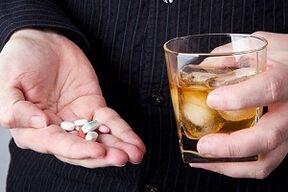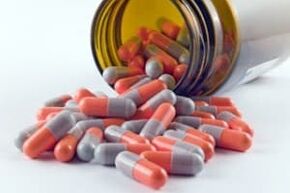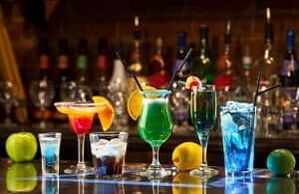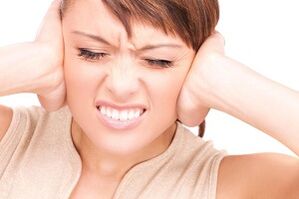Everyone knows under no circumstances should alcohol and antibiotics combine, but now the treatment is over, the last pill is not clear, how long does it take to drink spirits after taking antibiotics? Should I wait a few days or can I have a few in the evening? To answer this question, you need to have a more detailed understanding of how antibacterial drugs and alcoholic drinks work on the body, and how long after treatment it takes for drinking alcohol to be harmless. for health.
How many days after antibiotic treatment can you drink alcohol?

Drugs of this class are prescribed for the treatment of inflammatory diseases that the body cannot cope with on its own. Antibiotics attack pathogens, destroying their cell structure, so the disease gradually fades and the patient feels more comfortable.
However, using antibacterial drugs has another side. Since their elimination from the body is entirely liver-dependent, it suffers a significant impact. Experts also demonstrated that in those who drank alcohol during antibiotic treatment, the therapeutic effect was significantly lower than in patients who stopped drinking alcohol completely.
It all depends on the medicine used to treat it. It's best to check this question with your doctor. He will give you the details after the time when you can get back to your normal lifestyle and drink alcohol. If you are unable to contact your doctor, you can carefully review the instructions for taking the medicine.
It must be marked there:
- Duration of treatment;
- This drug is compatible with ethanol;
- The length of time when you must not drink alcohol even after your treatment ends.
A ban usually lasts three to seven days. It all depends on the drug and the time it takes to get rid of the drug from the body.
If the caption contains absolutely no information on drug compatibility with alcohol, this doesn't mean you can start drinking right after the end of your treatment.

In all cases, it is advisable to wait at least a day for the remaining ingredients of the drug to leave the body.
It is important to remember that even if there is no mention of interactions with ethyl alcohol in the instructions for use, you should not drink alcohol immediately after taking antibiotics. This can harm a young body after getting sick and cause unwanted side effects.
What antibiotic should not be combined with alcoholic beverages?
Despite any doctor's ban, some patients on antimicrobial therapy still try to drink strong drinks. At the same time, they don't even think about the possible consequences and assume that all the doctor's prohibitions are just an unnecessary precaution. In fact, if the simultaneous use of alcohol and drugs does not affect the patient's health in any way, this does not mean that everything has passed without leaving a trace on the body.
The ingredients of ethyl alcohol and drugs may not interact directly, however, ethanol can significantly reduce the medicinal properties of the drug and its effectiveness. The disease will not go into remission anywhere and will require another course of treatment, which will put a high load on the liver and other organs of the secretory system.
There is also a group of antibacterial drugs that are against the banning of drinking any alcoholic beverages. Information about alcohol incompatibilities is indicated in the caption of these drugs, in addition, patients must be warned about this by the attending physician responsible for prescribing the drug.
Drugs completely incompatible with ethyl alcohol include:

- Tetracyclines.They are widely used in medical practice for the treatment of various infectious diseases.
- Levomycetins.The drugs in this class can cause serious side effects by themselves, and taking them at the same time as a strong drink can exacerbate the toxic effects of the drug.
- Lincosamides.Drinking alcohol while taking these antibiotics negatively affects the central nervous system and liver.
- Aminoglycoside.Some of the most powerful antibiotics don't work well with other drugs. Absolutely contraindicated to drink strong drinks during the period of treatment with these drugs.
- Cephalosporin.Disulfiram-like reactions may occur due to the concomitant use of these drugs with strong beverages. The person will experience severe intoxication symptoms, leading to a significant decline in health.
- Anti-TB antibiotics.
- Macrolit.The interaction of these substances with ethanol has a potent toxic effect on the brain and liver.
- Antibioticsused in the treatment of leprosy.
There are several classes of antibacterial drugs, notes do not indicate how they interact with ethyl alcohol.
These drugs include:
- Antifungal drugs;
- Penicillin and others.
The instruction for use does not contain information about the effects of combining these drugs with alcohol does not mean that their combination is allowed. It should be noted that each person's site is unique, some people will remain safe after combining alcohol and antibacterial substances, others will face great risks.

So how long after treatment with antibacterial drugs can you drink alcohol? It all depends on the type of antibiotic and the patient's condition. If the comment indicates that alcohol is not allowed while taking the drug, then it is better to wait until the remaining ingredients of the drug are completely eliminated from the body. This usually takes about two weeks, so it's better to wait until the end of this period with a strong drink.
If the instructions of the medicinal product do not state the specifics of its interaction with ethanol, then it is better not to drink alcoholic beverages for at least three days after the end of treatment.
If you have any further questions, you can contact your doctor. He will explain in detail whether it is possible to drink while taking another antibacterial drug and will tell you how long after the end of therapy it is better not to drink alcohol.
The possible consequences of combining
Drinking alcohol after taking antibiotics can cause undesirable symptoms and negative side effects from the body. The fact is that there are certain antibiotics that can prevent the breakdown of ethanol in the body. As a result, acetaldehyde is no longer excreted from tissues and organs, and begins to accumulate in them.
In this case, the body is poisoned and the person experiences severe intoxication symptoms:

- Nausea and vomiting attacks;
- An unbearable headache that can't be relieved by even painkillers;
- Dizziness;
- Difficulty breathing;
- Chest pressure;
- Redness;
- Sweating;
- Increases or decreases blood pressure.
This is not an exhaustive list of the serious consequences of combining alcohol and drugs.
It is important to remember that so far only a handful of antibiotics have been shown to be incompatible with ethanol in clinical studies. The rest are either not fully understood, or are still in doubt.
In all cases, a person should know that drinking alcohol negatively affects the course of treatment. Ethanol interferes with the normal absorption of drugs and significantly reduces their effectiveness. So during treatment, you should refuse to drink any alcohol, even the weakest one.
This will help you avoid unpleasant side effects and keep you healthy. After all, no one can say for sure how drinking alcohol and antibacterial substances simultaneously affects the health of a particular person.


























